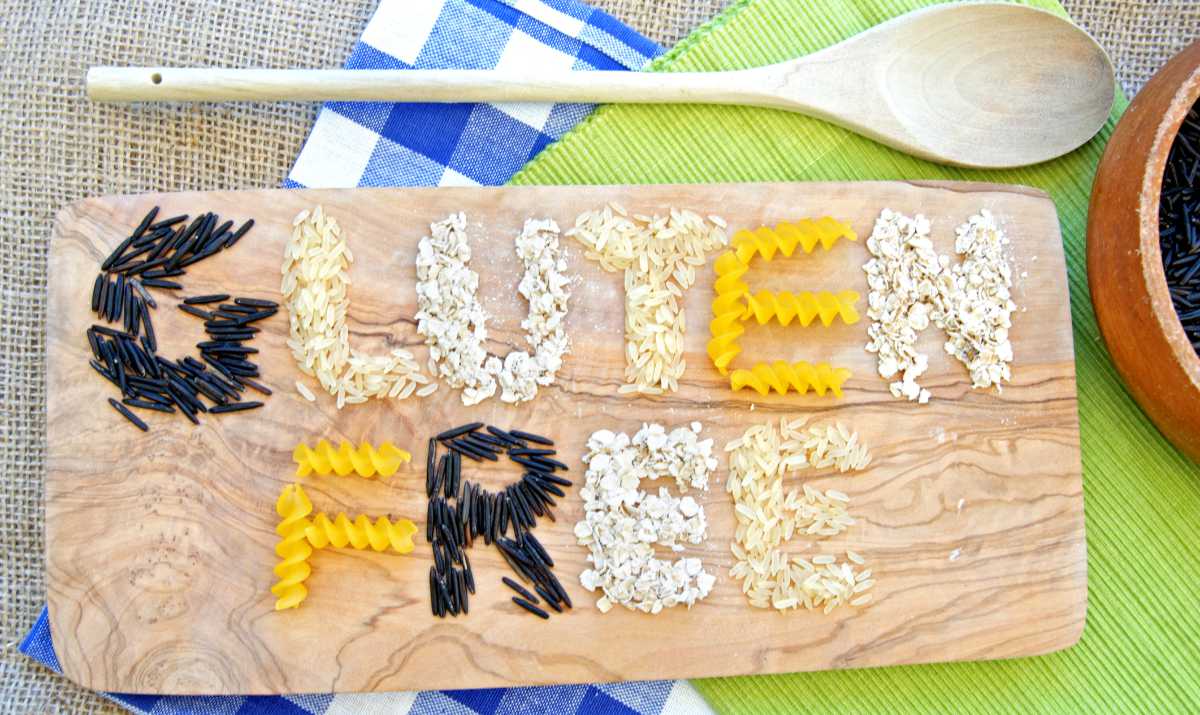If you have digestive problems after eating things like bread, pasta or cereal, there’s a chance you might be intolerant to gluten or have coeliac disease. But how do you tell the difference?
Both conditions can have similar symptoms, including diarrhoea, nausea, vomiting, fatigue, headaches, mouth ulcers, stomach pain and bloating.
The symptoms appear after consuming gluten, a protein found in wheat, barley and rye, and in many foods they’re used for, including bread, pasta, sauces and cereals, as well as goodies like cakes, biscuits and pizzas.
What’s the difference between gluten intolerance and coeliac disease?
The only way to find out whether you’ve got coeliac disease or gluten intolerance (sometimes called non-coeliac gluten sensitivity) is to see a doctor. Remember, it’s always best to speak to a professional, rather than self-diagnose, as you may need to have tests to rule out other things. Plus, if you do have coeliac disease, it’s vital you get the right treatment and advice. But in the meantime, here are some pointers to explain the differences between the two…
1. Gluten intolerance is much more common

Coeliac UK says around one in 100 people in the UK has coeliac disease but only 24% of them have been diagnosed – meaning nearly half a million Britons are unaware they have it.
While coeliac disease affects just 1% of the population, up to 13% are thought to have gluten intolerance. Indeed, a 2015 survey found 10% of households contain someone who believes gluten is bad for them.
“Part of this comes down to a greater awareness of conditions like coeliac disease and gluten intolerance,” says GP Dr Seth Rankin, founder of the London Doctors Clinic. “However, it’s important to stress that the two conditions are very different.”
2. Coeliac disease is an autoimmune disease
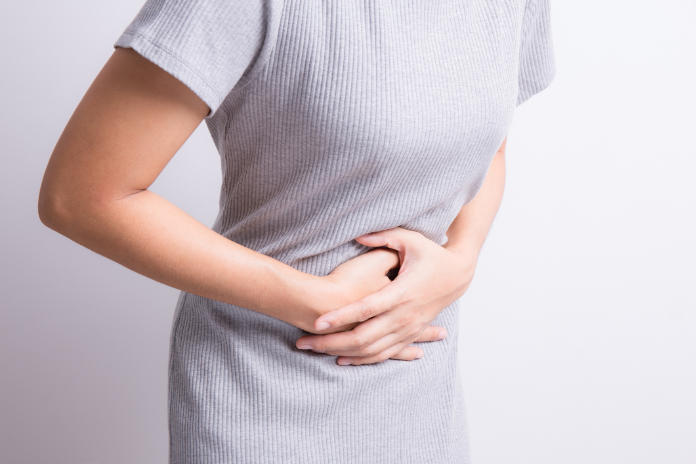
Coeliac disease is a serious illness where the body’s immune system attacks itself when gluten is eaten, damaging the gut lining.
In gluten intolerance, on the other hand, it’s unclear how the immune system is involved, but Dr Rankin says: “If you’re gluten intolerant, you may experience similar symptoms to someone who has coeliac disease. But importantly, there’s no evidence to suggest this affects the lining of the gut.”
3. Coeliacs are more likely to have other autoimmune disorders too
These include conditions such as type 1 diabetes and autoimmune thyroid disease. Coeliac UK says the chance of developing other autoimmune disorders may be increased when diagnosis of coeliac disease is delayed.
4. Coeliac disease is genetic

While the exact cause of coeliac disease isn’t known, having certain genes increases the risk, so people with a first-degree relative (parents, siblings) who has coeliac disease are more likely to have these genes and are at higher risk of developing it themselves.
Actress Caroline Quentin, who was diagnosed with coeliac disease five years ago, after suffering for years with symptoms including fatigue, diarrhoea, vomiting and mouth ulcers, has tested positive for genes linked to the disease.
She thinks her late mother had coeliac disease, because although she was never diagnosed with it, she had very bad digestive problems all her life, and eventually suffered with anaemia and osteoporosis, which are both linked to coeliac disease.
Caroline, who is a Coeliac UK patron, says: “I struggled for years with constant stomach pains, vomiting and total exhaustion.”
It’s not yet known whether gluten intolerance is related to genetics.
5. Coeliac disease can be conclusively diagnosed
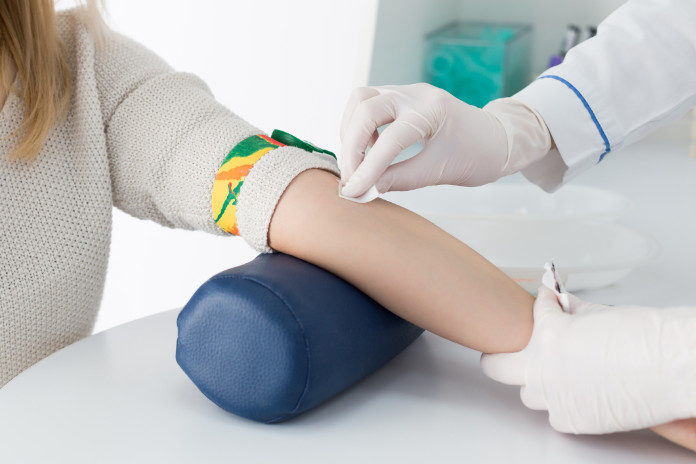
Coeliac disease can be diagnosed by blood tests which pick up specific antibodies signalling the condition. A biopsy of the villi – which line the small intestine (gut) – may also be performed, as gluten consumed by people with coeliac disease prompts the immune system to attack these areas. The villi absorb nutrients, and the attacking immune system flattens them, so less nutrients are absorbed.
There are no reliable blood biomarkers for gluten intolerance, so it’s diagnosed based on the symptoms being experienced, though tests should be carried out to rule out coeliac disease. A biopsy wouldn’t be useful if a person was only gluten intolerant, as the condition doesn’t damage the gut.
6. Coeliac disease can have serious complications
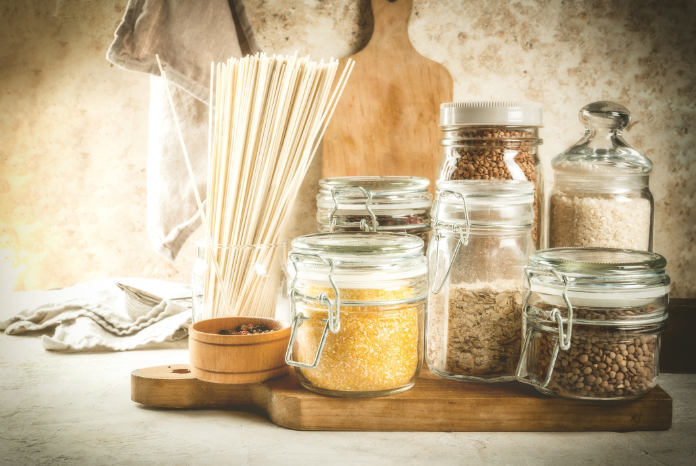
The gut damage caused by coeliac disease means nutrients from food can’t be absorbed properly, and if left untreated, the disease can lead to other conditions, including osteoporosis, infertility and anaemia. It’s linked with a higher risk of certain cancers too.
People with gluten intolerance aren’t at higher risk of these complications.
7. Coeliacs should NEVER eat gluten
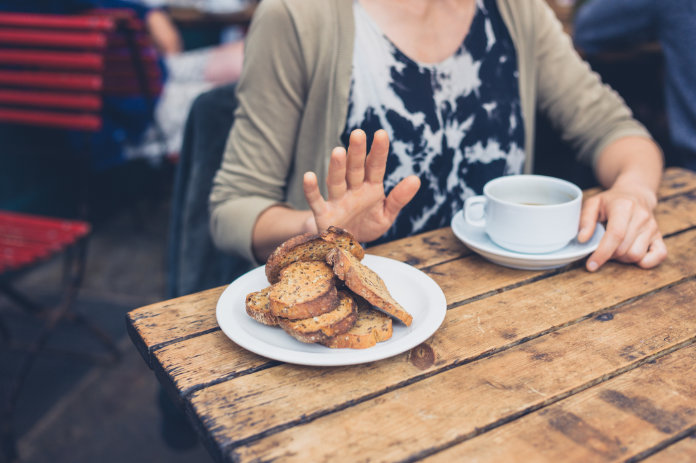
Even the tiniest trace of gluten should be off-limits for people with coeliac disease. Following a strict gluten-free diet should help control symptoms, allowing the damaged gut to heal. Eating any amount of gluten will cause further damage.
People with gluten intolerance can often eat small amounts without developing symptoms. It’s often a question of discovering what’s comfortable for you, and finding ways to manage symptoms so they don’t cause distress.
“If you have coeliac disease, you need to avoid gluten like the plague,” stresses Dr Rankin.
“If you’re gluten intolerant then it really is your choice. If you can stand a bit of bloating when eating bread, then it won’t kill you – but equally you may prefer gluten-free foods if you feel they reduce the symptoms.”
However, it’s important to note, coeliac disease and gluten intolerance aside, gluten is not a ‘bad’ food.
Dr Rankin adds: “The issue for me is the proliferation of the gluten-free fad and the rise in the belief that gluten is the real enemy of health – it’s not.”
Discover how to make gluten-free, flour-free strawberry muffins.























































